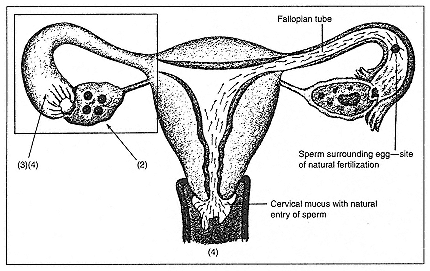
Question:
Hi,
I'm 33 years old my husband is 39. We are a healthy couple. Twice in one year we've gotten pregnant. First pregnancy, very early, I began to have spotting and eventually was diagnosed with an ectopic pregancy, I was given Methotrexate. This past May I was pregnant again, and during my first evaluation at 6 weeks everything was fine, except my progesterone level was low (12.17) and I began using shots and pills daily. After one week my levels reach 96.14.
At 8 weeks my evaluation showed no heartbeat, I was diagnosed with fetal demise. I'm concerned because my husband and I have different Rh and blood group (B- and O+) is this a problem? What should we do next? Infertility evaluation?
Thank you, M. writing from Puerto Rico
Answer:
Hello M. from Puerto Rico,
First of all, your difference in blood types does not lead to miscarriages. However, regarding your blood type differences, if you have a negative Rh factor (B-) and your husband is positive (O+) then you will need to receive an immunization called Rhogam (an Rh immune globulin injection), which should be given with this miscarriage, and should have been given already with the ectopic. This is because in a future pregnancy, the fetus can be affected by an immune response and develop a disorder called erythroblastosis fetalis. This is because your Rh antibodies may cross the placenta and attack the baby's red blood cells. The Rh positive baby then may develop Rh disease, a life-threatening condition that could cause anemia or other serious problems. For more on Rh factor, please visit the Mayo Clinic website: http://www.mayoclinic.com/health/rh-factor/MY01163
Secondly, you have to separate your two pregnancies because they are completely different. An ectopic is a pregnancy that implants in the tube. This is different from a miscarriage, which is in the uterus. They are not related. The only conclusion you could make is that because of a previous ectopic, you are at risk for another. However, you have already shown that you can get pregnant within the uterus despite this risk. Miscarriages are a natural occurrence. They occur in up to 40% of pregnancies, and the most common cause is a chromosomal abnormality in the developing fetus. The body (nature) realizes that the fetus is abnormal and stops the pregnancy or severe defects in the fetus causes it to die off. The good news is that most women that have miscarriages are eventually successful. You just need to keep trying and I don't think that you need to do anything different, necessarily.
Because of the progesterone issue, you might want to add supplemental progesterone after ovulation, just as a precaution. This can be given as injections or vaginal suppositories.
Despite the setbacks you have had, I am confident that you will be successful. Please follow up with your Ob/Gyn regarding your Rh factor!
Sincerely,
Edward J. Ramirez, M.D., FACOG
Executive Medical Director
The Fertility and Gynecology Center
Monterey Bay IVF Program
Monterey, California, U.S.A.











